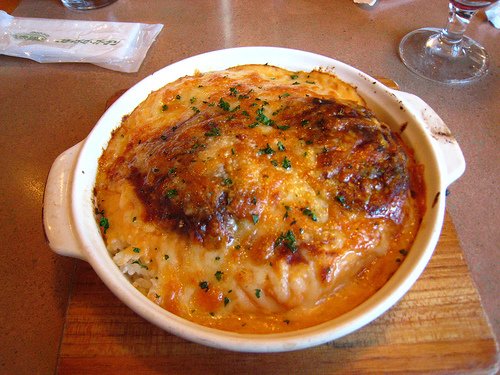You can’t think of Japan without also thinking of the country’s tallest and most famous mountain, Mt. Fuji. An active volcano 12,388 ft (3,776 meters) high that rises gracefully from the prefectures of Shizuoka and Yamanashi, Mt. Fuji is an incredibly beautiful image of Japan. In Japanese its name is Fuji-san, with ‘san’ being the correct pronunciation for the character for mountain, although it’s read ‘yama’ in other situations according to a secret code that foreigners can never seem to figure out. Along with taking pictures of beer vending machines and making that first pilgrimage to Kinkaku-ji, the Golden Pagoda of Kyoto, climbing Mt. Fuji is a popular activity among visitors to Japan, and if you’re ever planning to be here during the climbing season (July 1 to August 31), you should give it a try. You start from the 5th level, the highest point that vehicles are allowed on the mountain, and take one of three paths up to the topmost 10th level. As you ascend, you go rapidly from the middle of summer to the middle of winter, so you have to have lots of extra clothes with you to put on as the temperature drops. You continue to climb, passing the various stations along the way and rasping as the air gets thinner and thinner. When I did my ascent, I slept for a few hours at one of the little inns that are at each station, and woke up at 4 am to finish the rest of the climb and arrive at the top at dawn. It was, of course, a breathtaking experience. Traditionally mountains are associated with Shinto, the indigenous religion of Japan, and Mt. Fuji has been considered a holy place for thousands of years.
Today my wife and I ate at a restaurant that serves my favorite food, Hamburg Doria, which is a hamburger (Salisbury) steaks baked inside a rice and white sauce casserole. (Aside: one of the more bizarre aspects of Japan is that hamburger meat and a frankfurter without a bun are called hamburg and frankfurt respectively.) I used the bathroom and was pleasantly surprised to find it very clean. I saw the reason for this immediately: there was a clipboard hung by the door with the name of the employee in charge of cleaning, with an indication of when the room had last been checked along with his initials. It was an example of the Japanese word sekinin (seh-ki-NIN), meaning taking responsibility for something: by making sure that not only the manager but the customers see how often good old Negishi-san has cleaned the bathroom, the management could ensure that he’d do his darnedest to make everything was done right. I’ve seen this system used in other places, too, for example in the Gainax Phone Club I belong to, which lets me get little Flash animations from Gainax anime shows for my phone, such as one of Asuka saying “Anta baka?!” to me when I go to make a call. Each section of the club’s site displays the name of the Gainax employee responsible for creating interesting content, which no doubt plays a role in making sure each employee does his best. I’d have to say that taking responsibility is something the Japanese are very good at.
Being so busy with J-List, it seems I never seem to have enough time to unwind in the evenings. Fortunately, bathing is a big part of daily life here, and by taking a good book into the bath with me I can get clean and get my reading done at the same time, although it makes for some funny looks in the public bath. I’m currently working on a fascinating book by Carl Sagan in which he explores the brain and how it evolved. In a chapter about how memory works, he discusses how its possible to wake up after a dream so vivid we’re sure we’ll be able to remember in the morning, yet due to the way that our brains are wired, the memory of the dream invariably slips away from us, unless we write it down to talk about it with someone. I can certainly say that studying a foreign language like Japanese enables you to discover of these interesting limitations of the brain, too. For example, merely thinking about a kanji character or a vocabulary word won’t force it to be stored in longer-term memory. To internalize new information you need to attack it from several directions, perhaps by recalling the information from flashcards or a system like the “Zebra Check Set” study system, writing example sentences, or the hands-down best way to never forget a new word or grammatical point: try to use it in casual conversation but fail miserably, embarrassing yourself in the process. It’s not fun, but at least you’ll never forget that word.
Do you have a blog or website, and do you like dig J-List’s brand of fun Japanese pop culture? If so, then we hope you’ll join the Friends of J-List affiliate program, a great way for you to link directly to products you think are cool and get paid back from J-List either in cash or store credit, your option. Our affiliate members tell us our program is outstanding, very easy to use, with all orders listed very clearly. Since all graphics are hosted by us, you don’t even need to spend any bandwidth, and best of all, J-List’s commissions are the best in the industry. We’d love to have you join the Friends of J-List! For more information, see the link on our site.















